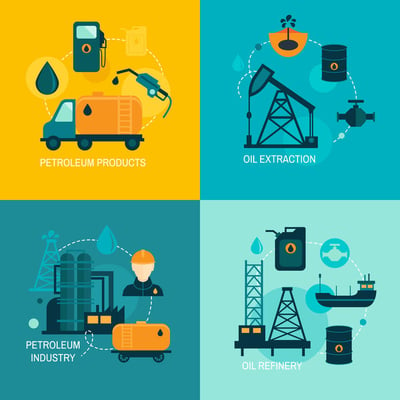Five Oil & Gas Logistics Essentials
For the energy sector, well-planned and executed logistics can make or break a project’s timeline. In our decades of oil and gas experience, the most common logistics scenarios we work with include:
- Canadian customs release of goods and materials ranging anywhere from raw steel, such as pipe and tubing, to multimillion dollar shipments of electronics and other equipment.
- LTL shipments of valves, testing equipment, machine parts, and samples.
- Large shipments such as turbine engines or FTL pipe moves across Canada and the United States.
- Hot shot shipments for outages.
- Larger logistics projects arranging everything from fencing, rig mats, equipment, and pipe from fabricators and manufacturers, and transporting directly to construction sites.
With the shift in the economy over the years, in addition to shipments to sites in western Canada, we’ve seen an increase in shipments going to the USA from Canada, as well as shipments to new sites in Mexico.
Logistics essentials for O&G
In order to maintain project timelines and budgets, reliable transportation and smooth border crossings are essential. You need the right equipment in the right place at the right time, but you also need the right paperwork, the right packaging, and the right plan.
Here are five essentials every oil and gas company should focus on for a smooth experience moving goods across the border:
1. Detailed information about your shipment
Knowing the details about your shipment is vitally important. For example, the packaged weight and dimensions are needed before the freight move in order to supply the correct equipment to load and transport it.
Providing as much information as possible to your freight forwarder helps ensure a smooth shipping process:
- Know the weights, dimensions, number of pieces, origin, delivery address, and any special shipping requirements prior to pick up.
- Provide pictures of the freight to your freight forwarder.
- Know ahead of time who is acting as the exporter and the importer for customs.
- Confirm your customs broker prior to departure.
2. Adequate packaging
From a freight perspective, the most important thing that often gets overlooked is proper packaging.
It’s imperative that your equipment arrive without damage, so make sure you use proper and sufficient dunnage and full crates to protect your shipment during transit.
3. Trade agreements and SIMA
With the existence of multiple trade agreements with many countries, including NAFTA (soon to be USMCA), importers should be aware of these agreements in order to avoid paying potential duties.
Additionally, there are many goods that may be subject to SIMA (Special Import Measure Act) fees and countervailing duties.
Check in with trade agreements and SIMA to ensure you’ve got your bases covered.
4. Responsive logistics personnel
Enlisting the services of reputable and knowledgeable logistics personnel can ensure all the required information, documentation, and transportation is in place for your shipments.
For the energy sector, responsiveness, especially after hours, is essential in a logistics partner. The ability to react right away, along with connections in the industry that understand the importance of jumping immediately when called upon, should be top of mind when choosing your logistics team.
- Experienced freight forwarders have dealt with a wide range of situations—they are able to provide a multitude of options that can save time and money.
- Skilled customs brokers ensure the proper review and research is done in order to take advantage of savings and avoid unnecessary duties.
- Full-service logistics teams can coordinate both freight forwarding and customs brokerage to ensure the smoothest possible process.
5. Advance planning and due diligence
Plan ahead for your shipments whenever possible, involving the freight forwarder or transport carrier and customs broker in advance so all can plan and act together as a coordinated team. This not only ensures you have the right equipment to move your shipment, but it decreases your costs as well.
Although much of the O&G industry is reactive to unexpected breakdown of equipment, when at all possible, engaging logistics personnel as soon as possible allows the forwarder to start sourcing transportation options and positioning equipment to move the freight, and the customs broker to ensure the required documentation is in place to clear customs.
Discussions that should be had in advance, include:
- Packaging discussions as well as transport requirements, such as the type of trailer to be used, and the tarping and dunnage requirements, etc.
- Loading procedures and requirements to guide the transportation vendor on safety, compliance, and transport needs.
- Ensuring due diligence is completed between the importer and exporter, and that documentation requirements are met for customs compliance.
At Cole International, we are proud to be a full-service logistics provider integrating freight forwarding and customs brokerage to serve the oil and gas industry across North America. Full service logistics. It’s what we do.
Oil & Gas Logistics. It's what we do.

